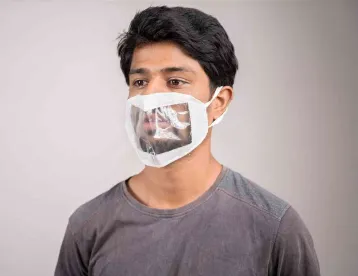As nonprofit and trade associations begin to plan for the eventual return to in-person conferences, we take a look at how some of the discrimination and privacy laws apply to non-employee attendees of an in-person conference.
The trove of useful information on our COVID-19 Related Workplace Litigation Tracker includes some “public nuisance” cases involving alleged failures to implement preventive measures recommended by the CDC and OSHA.
These cases show that taking precautions based upon public health guidance is important, but they must also be balanced with legal obligations concerning confidentiality, privacy and providing reasonable accommodations.
In March 2020, the Equal Employment Opportunity Commission (EEOC) updated its Pandemic Preparedness Guidance. In December 2020, the EEOC issued guidance on what employers should know about COVID-19 and the laws the EEOC enforces, such as the Americans With Disabilities Act (ADA), the Genetic Information Nondiscriminaton Act (GINA) and Title VII.
While this guidance was developed to assist employers, much of it is applicable to in-person conferences as well.
Importantly, this guidance makes clear that – as long as COVID-19 remains a global pandemic and as long as inquiries are made in a way that does not violate the confidentiality requirements of the ADA or GINA – it does not violate the ADA or GINA to require in-person conference attendees to:
-
Answer questions about COVID-19 symptoms
-
Have their temperature taken
-
Show proof of a negative COVID-19 test
-
Wear personal protective equipment, such as a face mask (with some exceptions)
-
Show proof of having received a COVID-19 vaccine (with some exceptions)
Reasonable Accommodations
As in the employment setting, absent undue hardship, reasonable accommodations must be provided to conference attendees who make it known that they cannot receive a vaccine or wear a face mask, for example, due to a medical condition or because of a sincerely held religious belief.
There is no bright-line test that defines a reasonable accommodation under the ADA or Title VII (or similar state laws). Instead, the determination of what constitutes a reasonable accommodation must be based on the individual facts and circumstances of the particular situation – which, quite frankly, raises a whole host of legal issues and is not very practical in the context of in-person conference attendance.
Privacy Considerations
It also is important to remember that if an association asks questions in a way that requires the disclosure of medical information, that information will be protected by the confidentiality provisions of the ADA, GINA, applicable state and local laws, and perhaps even privacy laws (including GDPR, if the information pertains to an EU citizen or resident). Consequently, it is important to design the questions in a way that does not violate these provisions.
Similarly, if an association collects or stores medical information, such as keeping a log or list of attendees and their temperatures, COVID-19 test results, or COVID-19 vaccination status, it must comply with the confidentiality requirements of the ADA and GINA, as well as any applicable privacy laws (including GDPR, if the information pertains to an EU citizen or resident).
As a practical matter, the best approach for in-person conferences for most associations, based on current guidance (as well as current availability of the COVID-19 vaccine), is to:
-
Follow the guidance from the CDC as well as state and local public health authorities
-
Encourage, rather than require, attendees to get the COVID-19 vaccine
-
Avoid asking questions that elicit medical information by combining medical and non-medical questions on the same questionnaire
-
Establish a mechanism that allows an attendee to request an accommodation, either specifically for COVID-19 requirements or in general
-
When following up on questionnaires or requests for accommodations, be mindful of legal requirements under the ADA, GINA, Title VII, as well as privacy laws
Planning for the new normal is challenging because there remains a plethora of unknowns, and the guidance will undoubtedly change as 2021 unfolds. As associations begin to plan for in-person conferences, it will be critical to not only keep up with this guidance but also to seek advice from legal professionals who are well equipped to help associations balance their desire to keep attendees safe with the host of legal pitfalls associated with doing so.




 />i
/>i

